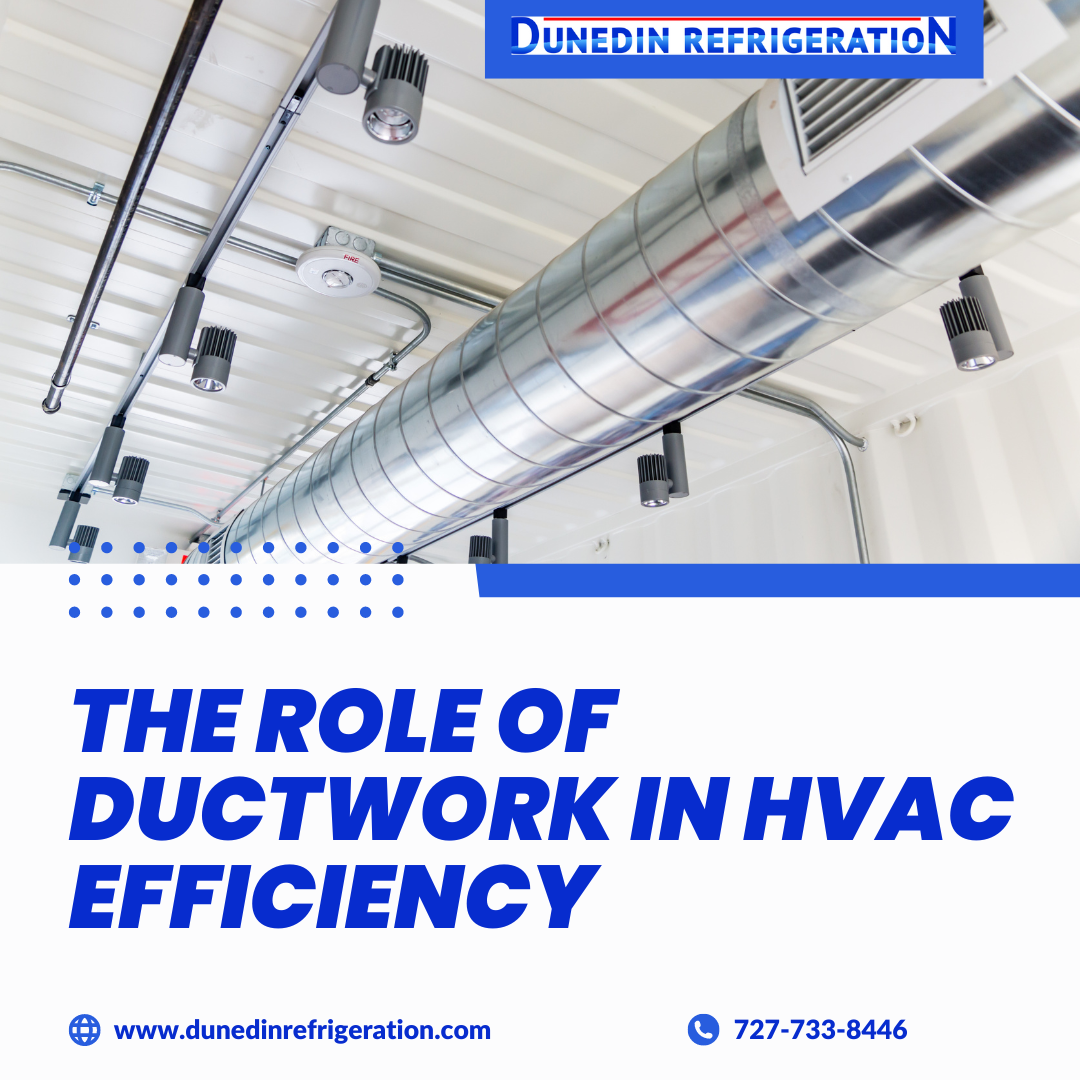When it comes to HVAC systems, the focus often falls on the units themselves—furnaces, air conditioners, and heat pumps. However, one critical component often overlooked is the ductwork. The ducts in your HVAC system are responsible for delivering conditioned air throughout your home, making them a key player in maintaining indoor comfort. Yet, despite their importance, many homeowners underestimate the impact that clean and efficient ductwork can have on overall HVAC performance. This blog will explore the role of ductwork in HVAC efficiency and why keeping your ducts clean is essential.
The Importance of Ductwork in HVAC Systems
Ductwork serves as the circulatory system of your HVAC setup, transporting air from the central units to various rooms in your home. Whether you’re heating or cooling, the effectiveness of your system hinges on the quality of your ducts. Properly designed and maintained ductwork ensures that conditioned air is distributed evenly, without unnecessary loss of energy.
How Ductwork Affects HVAC Efficiency
- Airflow Distribution: The efficiency of your HVAC system is highly dependent on the proper distribution of air. If your ductwork is well-designed and free of obstructions, it will effectively deliver air at the desired temperature to every room. Conversely, poorly designed or obstructed ducts can lead to uneven temperatures, forcing your system to work harder to maintain comfort levels.
- Energy Consumption: Dirty or leaky ductwork can significantly increase the energy consumption of your HVAC system. Leaks allow conditioned air to escape into unconditioned spaces like attics or crawl spaces, meaning your system must produce more air to compensate for the loss. This not only wastes energy but also drives up your utility bills.
- System Longevity: Efficient ductwork contributes to the longevity of your HVAC system. When your ducts are clean and free of debris, your system doesn’t have to work as hard to push air through. This reduces wear and tear on the HVAC components, potentially extending the life of your system.
The Impact of Dirty Ducts on HVAC Efficiency
Over time, dust, dirt, and other debris can accumulate in your ductwork. This buildup can have several negative effects on the efficiency of your HVAC system:
- Restricted Airflow: Accumulated debris can restrict airflow through the ducts, making it harder for your HVAC system to deliver air. This reduced airflow means your system has to run longer to reach the desired temperature, increasing energy use and costs.
- Poor Air Quality: Dirty ducts can also lead to poor indoor air quality. Dust and other contaminants in the ducts can be circulated throughout your home every time the HVAC system runs. This can exacerbate allergies and respiratory issues, especially in sensitive individuals.
- Increased Wear on HVAC Components: When ducts are dirty, the HVAC system has to work harder to push air through the obstructions. This extra strain can cause components like fans and motors to wear out more quickly, leading to more frequent repairs and potentially shortening the lifespan of your system.
The Benefits of Clean Ducts
Regular duct cleaning can significantly improve the efficiency of your HVAC system. Here’s how:
- Improved Airflow: Clean ducts allow air to move freely through the system, ensuring that your HVAC units can operate at peak efficiency. This not only improves the comfort level in your home but also reduces the energy required to maintain it.
- Energy Savings: By removing the obstructions in your ducts, your HVAC system can heat or cool your home more efficiently. This improved efficiency translates to lower energy consumption and reduced utility bills.
- Better Indoor Air Quality: Cleaning your ducts removes dust, allergens, and other contaminants, leading to healthier indoor air. This is especially important for households with pets, smokers, or family members with allergies or respiratory conditions.
- Extended System Life: Clean ducts reduce the strain on your HVAC system, helping it to function more smoothly and reducing the likelihood of breakdowns. This can extend the life of your system, saving you money on repairs and replacements.
Signs Your Ducts Need Cleaning
Not sure if your ducts need cleaning? Here are some signs to watch for:
- Visible Dust and Debris: If you notice dust buildup around your air vents, it’s likely that your ducts are also dirty.
- Inconsistent Airflow: If some rooms in your home are consistently warmer or cooler than others, it could be a sign of blocked or dirty ducts.
- Musty Odors: Persistent musty smells when your HVAC system is running may indicate mold or mildew in your ducts.
- Increased Allergy Symptoms: If you or your family members experience worsening allergy symptoms, dirty ducts could be circulating allergens throughout your home.
How to Maintain Clean Ducts
Maintaining clean ducts doesn’t have to be difficult. Here are some tips:
- Regular Inspection: Have your ductwork inspected regularly by a professional HVAC technician. They can identify potential issues before they become major problems.
- Change Filters: Regularly changing your HVAC filters can prevent dust and debris from accumulating in your ducts. High-efficiency filters are particularly effective at trapping particles.
- Schedule Professional Cleaning: Professional duct cleaning every few years can keep your system running efficiently. Make sure to hire a reputable company with experience in duct cleaning.
Conclusion
Your HVAC system’s efficiency depends on more than just the units themselves; the ductwork plays a critical role in ensuring your home stays comfortable and energy-efficient. Clean ducts improve airflow, reduce energy consumption, enhance indoor air quality, and extend the life of your HVAC system. By prioritizing duct maintenance, you can enjoy a more efficient system and a healthier home environment.
For more information on how Dunedin Refrigeration can help you maintain your HVAC system, including professional duct cleaning services, contact us today.

